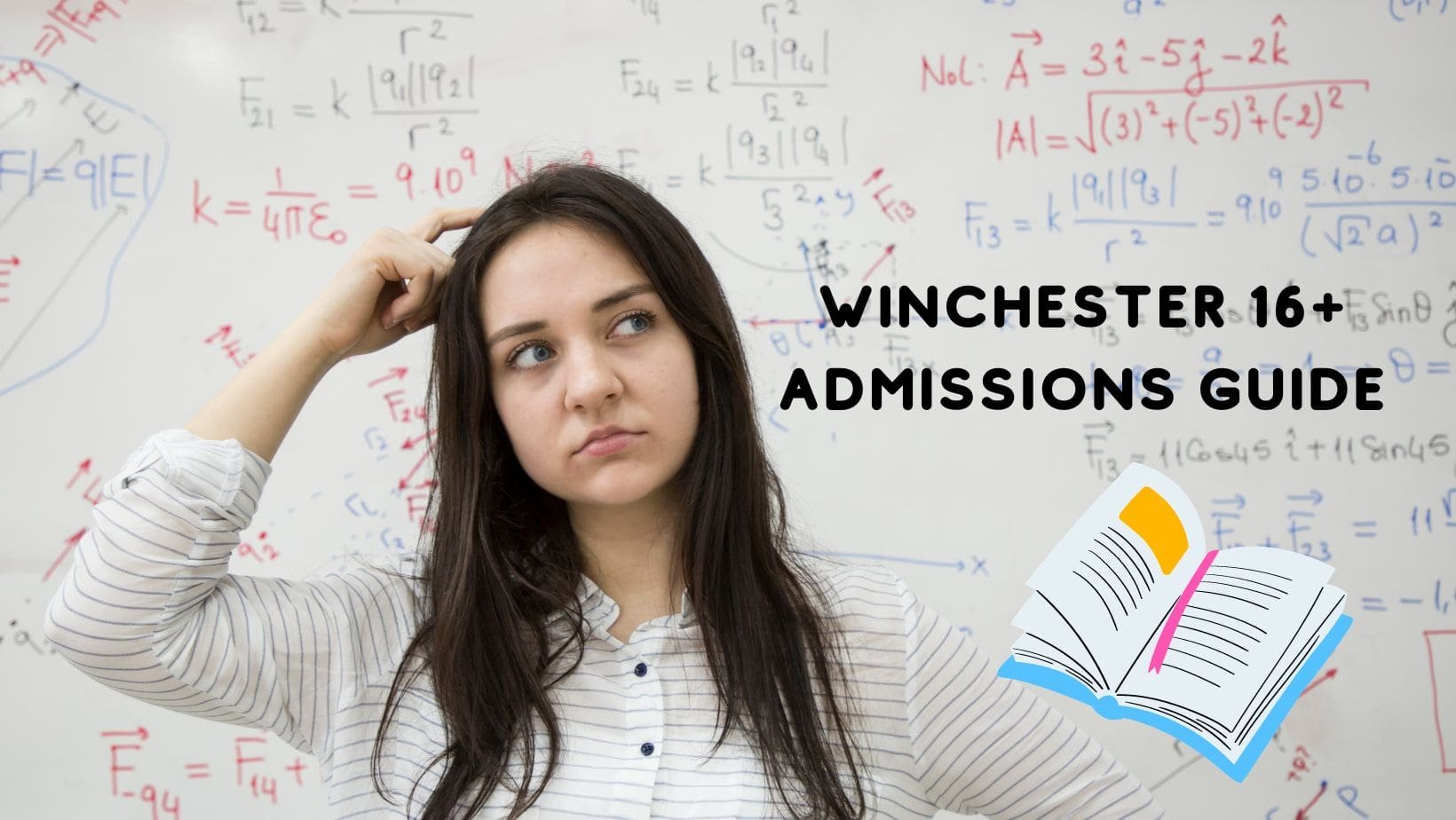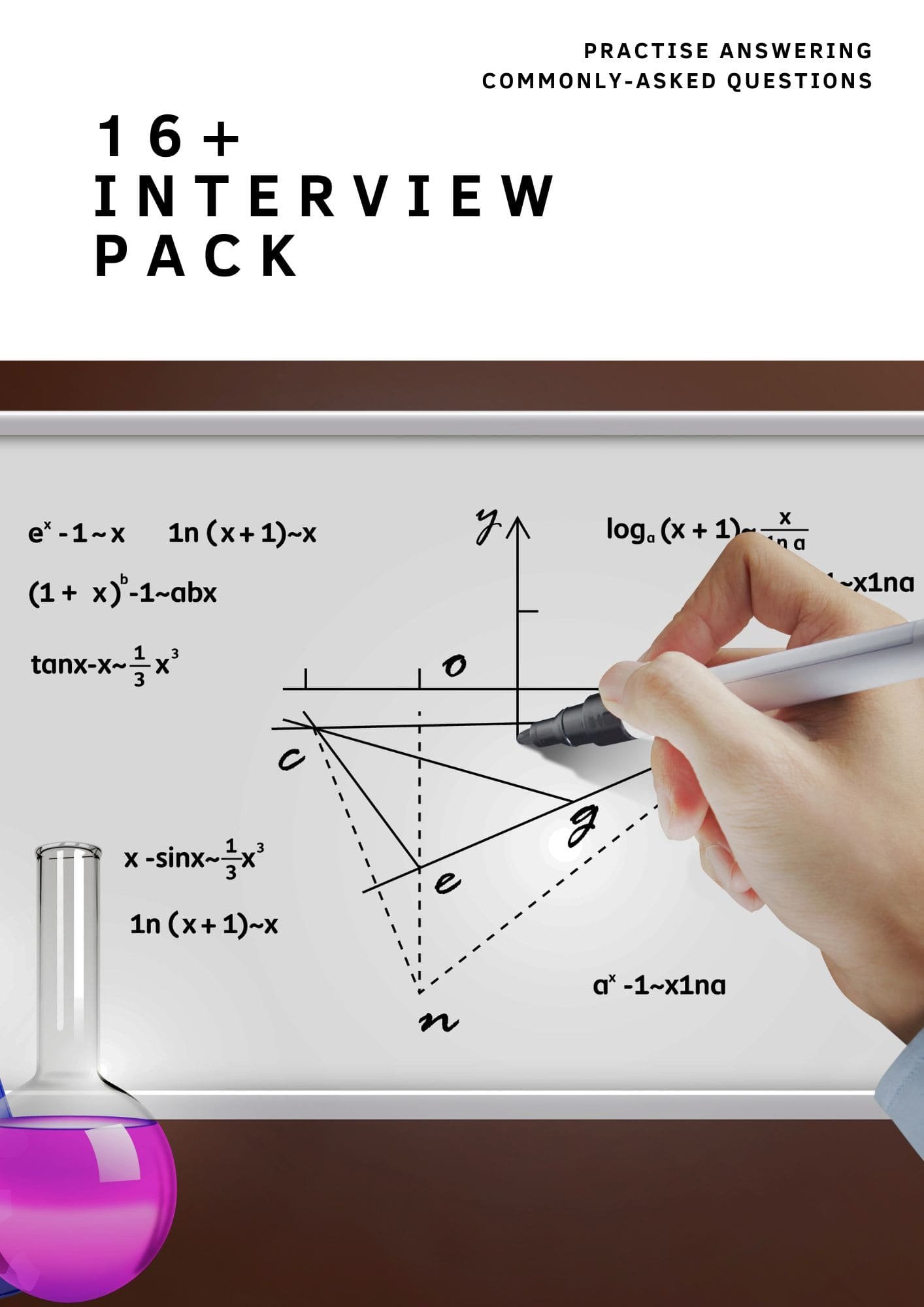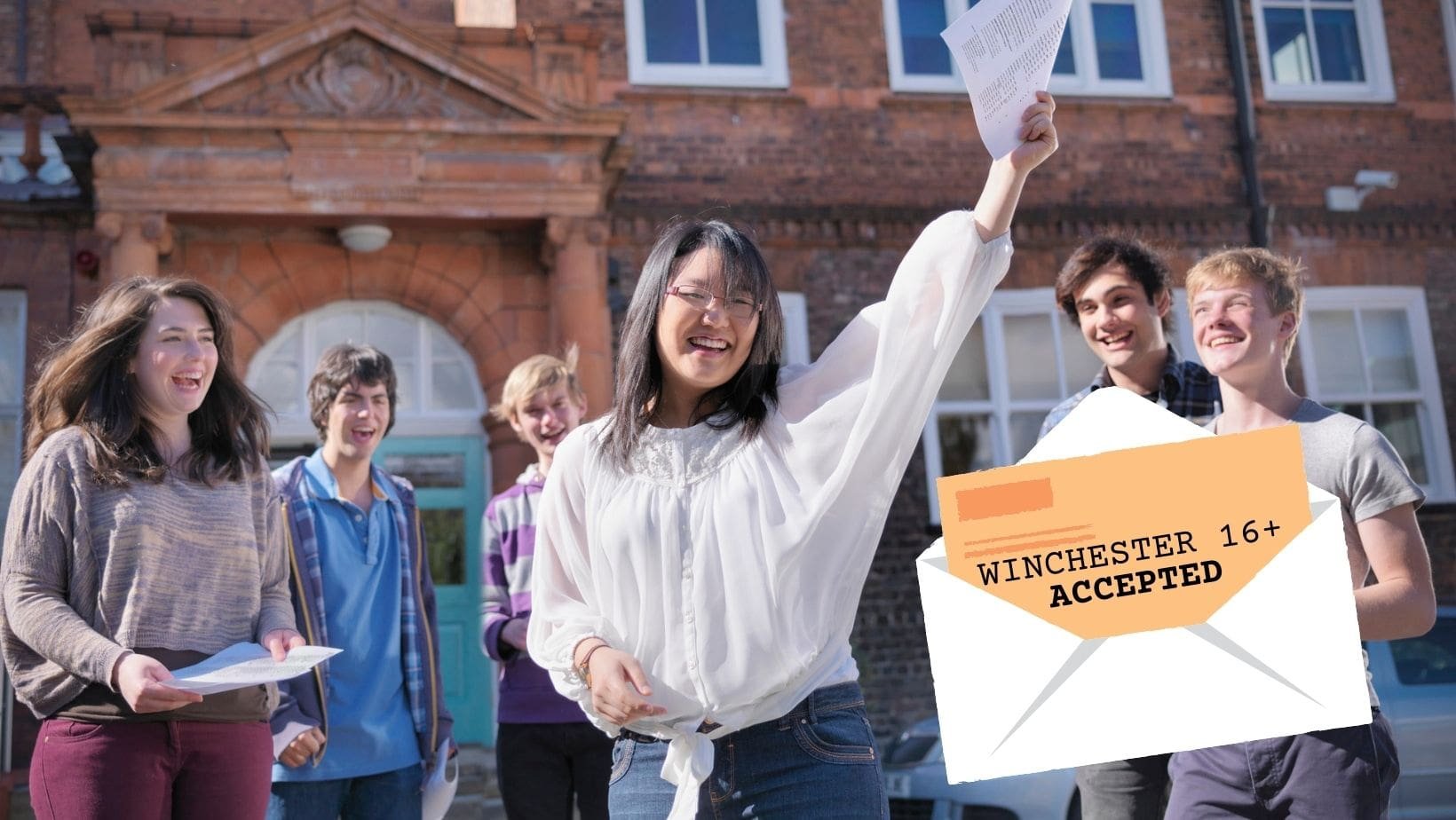A Comprehensive Guide to 16+ Winchester Admissions
Key Dates, Exam Guidance and More
Winchester 16+ Admissions Process
Winchester College offers a dynamic and challenging experience for students entering at Winchester 16+. With a focus on academic rigour, students are encouraged to go beyond the A-Level curriculum and explore broader academic themes through unique programmes like the non-examined "Div" course. Winchester 16+ students benefit from a vibrant, supportive community and are well-prepared for top university destinations worldwide. While currently girls can only join Winchester 16+ as day pupils, from 2026 entry two purpose-built boarding houses will allow girls to join the sixth form as boarders as well.
This blog will break down the Winchester 16+ admissions process, outlining key dates and admissions criteria as well as offering tips to excel in the interview.
(If you’re interested in applying to Winchester at 13+, see our separate detailed guide here.)
Winchester 16+ Entrance: Key Dates
Compared to the long, complex process of 13+ admissions which lasts three years, Winchester 16+ entrance is much more simple and takes place within one academic year. Here are the key dates you need to know:
Attend an Open Day: September of Year 11
Potential students should attend an open day to get a feel for the school, meet teachers, senior staff and current student, have a look at the facilities and decide whether the school is the right fit for them.Application Deadline: September of Year 11
All students’ applications must be submitted by mid/late September.Aptitude Tests: Early October of Year 11
All students complete aptitude tests remotely in early October. In response to student performance and their previous record, a shortlist of candidates will be invited to interview. Those shortlisted must pay a £400 registration fee at this point.Interview: November of Year 11
Successful applicants at this point will be invited to attend an interview at the school in November.Places offered: Early December of Year 11
Sixth Form Induction Day: May/June of Year 11
Incoming students are invited to a day at Winchester College to experience the school and learn what to expect.Confirmation of GCSE Results: August of Year 11
After receiving their GCSE results, applicants must send a record of their grades to Winchester to confirm their place.
Winchester 16+: Is Winchester the right fit for me?
Before applying for Winchester 16+ admissions, it’s important to consider whether Winchester College is really the right fit for you. The best way to do this is spend time researching the school and attending an open day where you can see the school yourself and ask questions. Spend some time researching the A Level subjects offered, the school’s ethos and facilities.
You should bear in mind that Winchester is a very strong academic school. You’ll be expected to achieve an 8, 9 or A* at GCSE in any of the subjects you might take at A-Level. Winchester 16+ also pushes students beyond the bounds of traditional exam requirements, providing an education that stretches students in preparation for university, and as a result they have a high acceptance rate to top UK and international universities.
Equally, the Winchester 16+ places a strong emphasis on extracurriculars and makes space for these within the academic day. Generally, afternoons in sixth form are left open for students to explore their own extracurricular pursuits, and the school has a wide range of extra and co-curriculars available, as well as the facilities to support these. Students can engage with art, sport, drama and more, and must either do community service or join the Combined Cadet Force.
The Winchester 16+ Aptitude Test
In order to be offered an interview place, students applying at Winchester 16+ must first take an aptitude test. This online test evaluates candidates on three critical areas: vocabulary, mathematics, and non-verbal reasoning. Each of these components is designed to assess a student's cognitive abilities and potential for success in a rigorous academic environment.
Understanding the Test Components
Vocabulary: This section tests the candidate's understanding of words and their meanings, as well as their ability to comprehend and manipulate language. It often includes multiple-choice questions that require students to identify synonyms, antonyms, or the correct usage of words in context.
Mathematics: The mathematics portion covers various topics such as arithmetic, algebra, geometry, and problem-solving skills. Candidates should be prepared to tackle numerical reasoning questions, which require logical thinking and the application of mathematical concepts to solve real-world problems.
Non-Verbal Reasoning: This segment assesses a candidate's ability to identify patterns, shapes, and logical sequences without relying on language. Non-verbal reasoning questions might include puzzles, diagrams, and spatial awareness tasks, all of which test a student's critical thinking and problem-solving abilities.
How to Prepare for the Aptitude Test
Preparation for the Winchester 16+ aptitude test involves a structured approach and the use of diverse resources. Here are some effective strategies:
Practice Tests: Whilst Winchester don’t publish sample papers, you can utilise other school’s 16+ past papers, especially for Maths. U2 Tuition’s 16+ tutors have a bank of 16+ Maths past papers they utilise if you think you could benefit from the extra support. You should be able to find some reasoning papers online too, though these are harder to come by! Again, our tutors are well-placed to provide sample questions and practice papers, allowing students to hone their skills in vocabulary, mathematics, and non-verbal reasoning.
Vocabulary Building: To improve vocabulary, students can use resources such as Quizlet or Vocabulary.com. Flashcards, word games, and regular reading (fiction and non-fiction) can also help in expanding word knowledge. Reading can also be a great way to enhance vocabulary. Check out the Sevenoaks sixth form reading list.
Mathematics Review: Revisit foundational math concepts through online resources like Khan Academy or BBC Bitesize, which offer lessons and exercises tailored to different mathematical areas. You could stretch yourself with more problem solving-focused questions by using UKMT Maths Challenge papers.
Non-Verbal Reasoning Exercises: Engaging with non-verbal reasoning puzzles can sharpen analytical skills.
By employing a combination of these strategies and resources, students can enhance their confidence and readiness for the Winchester 16+ aptitude test, ultimately improving their chances of securing an interview and succeeding in their academic journey.
Looking for support with Winchester 16+ admissions?
A Winchester 16+ tutor can remove the stress from the application process. Tutors help prepare you for the Winchester 16+ aptitude test, providing supplementary preparation resources.
Winchester 16+ tutors can also provide a tailored preparation plan in the build up to the Winchester 16+ interview, helping you hone and develop your subject knowledge to allow you to shine on the day of the interview. Regular interview practice and feedback is a great learning opportunity that allows you to improve your interview skills and build your confidence for the Winchester 16+ interview.
Find out more about the 16+ tutoring services we offer here.
Approaching the Winchester 16+ Interview
For Winchester 16+ entrance, students take subject-specific interviews for the three subjects they’ve selected to study at A-Level. These interviews test your knowledge of your subject and your problem-solving skills. You are not expected to know everything; the interview tests how you respond to unseen material and how you think. It’s therefore really important to articulate your thought process so the interviewer can see the stages of your argument, even if you’re not sure of your answer.
Students looking to study English, Geography, or History at A-level will need to bring an example of extended written work to discuss at interview. While those applying to study Art or DT will need to bring a portfolio. Spend some time selecting and improving your work in advance of submitting it. Before the interview, brainstorm where the interviewer might ask you to develop, explain or defend your ideas and come up with a response to these predictable questions.
Here are some tips for preparing for the Winchester 16+ Interview:
Research Winchester College’s history.
It’s likely that at Winchester 16+ entrance you may be asked questions about Winchester College’s history, or you may wish to make reference to it to show your knowledge of the school’s reputation and achievements.
Develop an extracurricular profile
Winchester gives students a lot of time to devote to extracurricular pursuits and structures this as part of the school week. Make sure you have already developed extracurricular interests, whether that be sports, clubs or something whacky. Winchester 16+ admissions are looking to see your beyond the classroom interests as much as your academic abilities! Don’t be afraid to also mention if there’s something you’d like to get involved in at Winchester — this shows you’ve taken the time to research the extracurriculars the school provides.
Build your subject knowledge
Prior to interview, it’s important you develop and build a knowledge of and interest in your subject beyond the GCSE syllabus. You could try entering an essay competition, such as Minds Underground’s, to demonstrate a beyond the curriculum interest in your A Level subjects, something emphasised in Winchester’s teaching style, and allows you to develop crucial essay writing and research skills that will help you through Sixth Form.
For further general interview guidance to help you prepare for your Winchester 16+ interview, take a look at our 16+ guide. You can also purchase our 16+ interview question pack, filled with useful practice questions and guidance for tackling the interview.
Winchester 16+ Scholarships and Bursaries
The school offers a range of bursaries for those entering at Winchester 16+, including a means tested bursary. In fact, it has a generous bursary allowance with around 20% of students receiving financial support. Find out more about Winchester 16+ bursaries here.
At Winchester 16+ entry, students can also apply for music and sports scholarships. Winchester 16+ candidates can also apply for the Warden’s Sixth Form awards. These are awards in a range of subjects, including for those studying Modern Languages, Classics and even for an entrepreneurial spirit! Find out more here.
Looking for a Winchester 16+ Tutor to support your Winchester Application?
A Winchester 16+ tutor can provide invaluable support throughout the application process by tailoring their approach to meet your unique needs. From helping you prepare for aptitude tests to strengthening your interview skills, tutors focus on developing subject-specific knowledge and broader thinking skills. Tutors provide tailored interview preparation, offering regular practice and feedback to enhance your ability to articulate your thoughts and demonstrate problem-solving skills under pressure. This individualised attention helps students excel in key areas and builds your confidence to tackle the interview.
After an initial consultation to discuss your needs, U2 will send you the profiles of some of our tutors specialised in Winchester 16+. When we’ve found the right fit, you’ll get started with lessons at the frequency and length you desire. U2’s Winchester 16+ tutors are a team of Oxbridge graduates, many of whom attended Winchester themselves, making them ideal to support you through the application process.
A Winchester 16+ tutor could also also lead you through an independent research project in an area of your interest to enhance your subject knowledge for the interview and build critical essay writing and research skills.
Book a free initial consultation now to find out more about how our tutors can support you through the Winchester 16+ admissions process.






